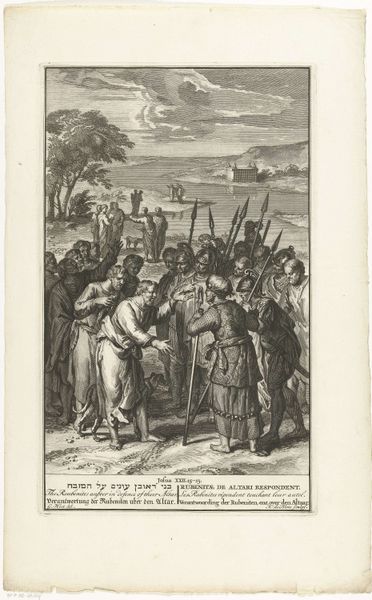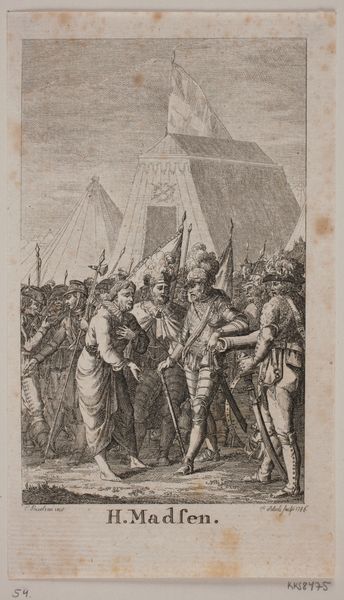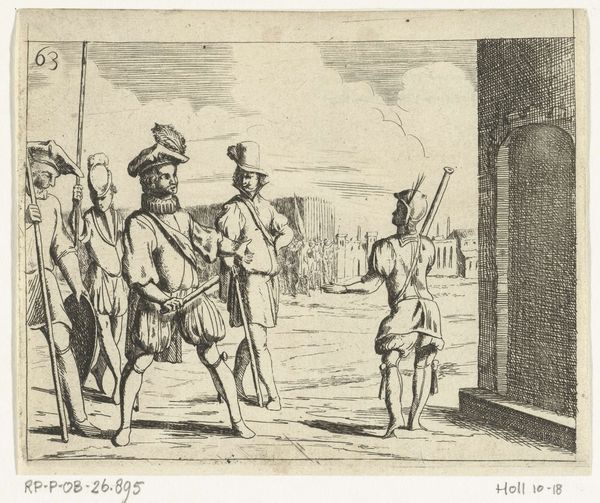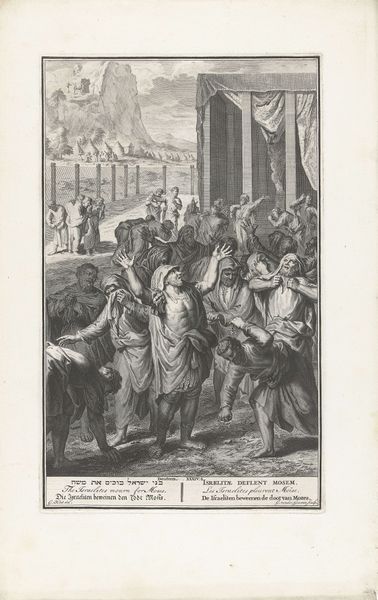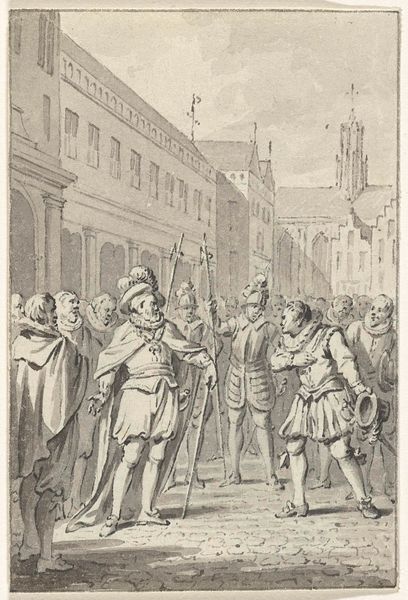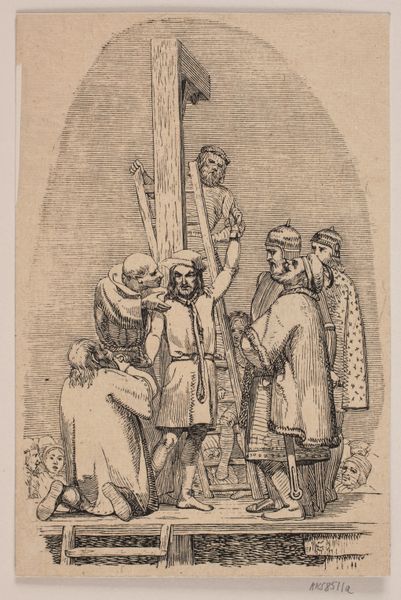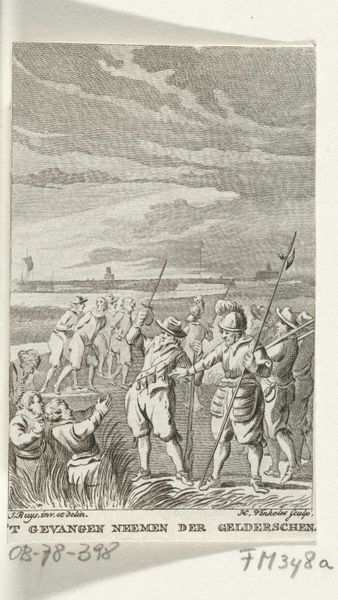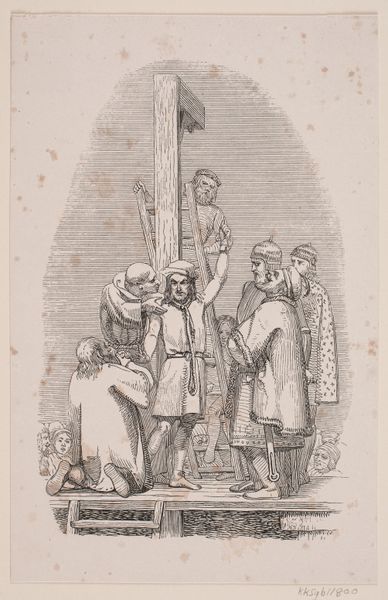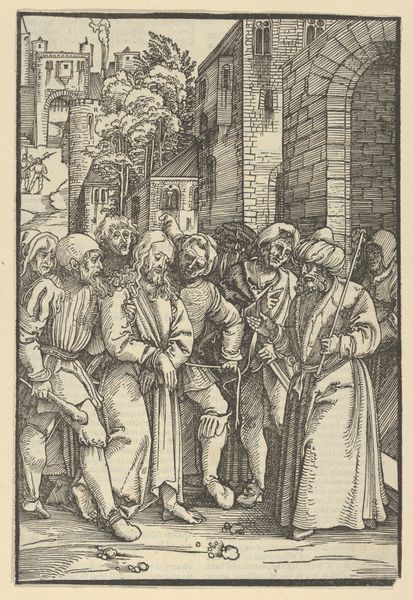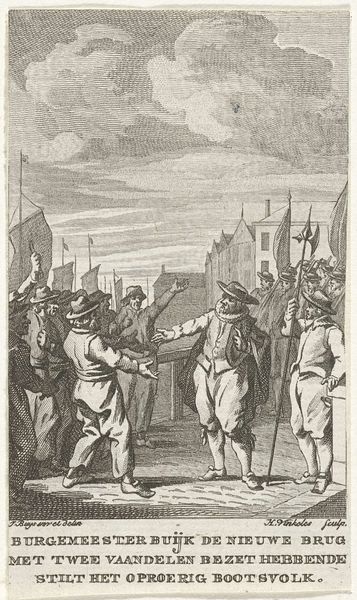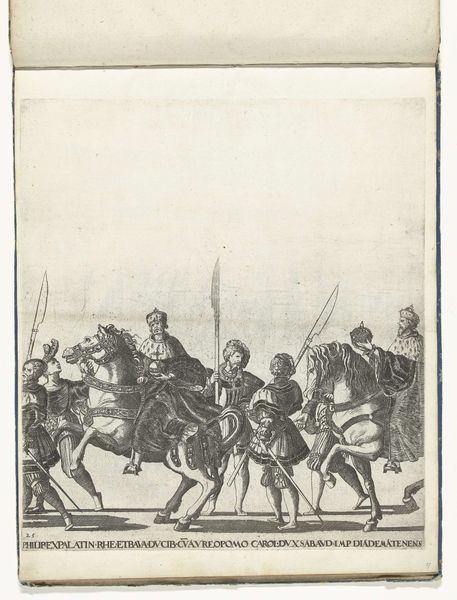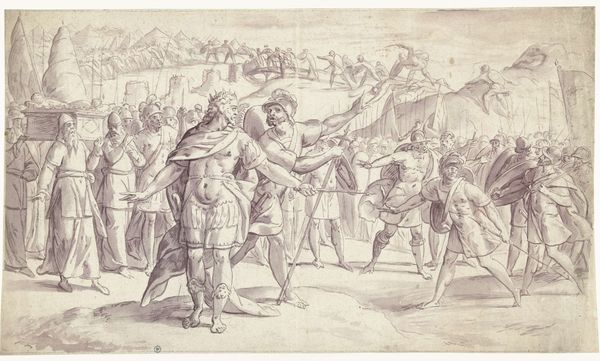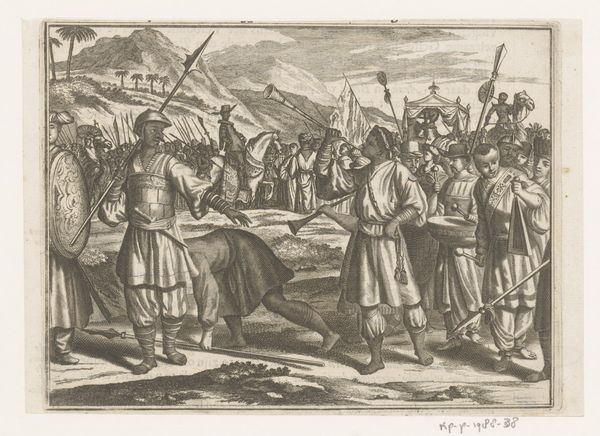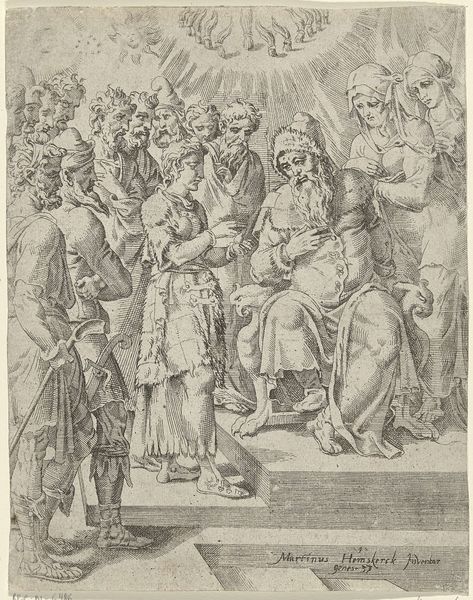
drawing, print, etching, ink, engraving
#
drawing
#
ink drawing
#
medieval
#
narrative-art
# print
#
etching
#
figuration
#
ink
#
genre-painting
#
history-painting
#
engraving
Dimensions: height 154 mm, width 128 mm
Copyright: Rijks Museum: Open Domain
Curator: This ink drawing, likely etched or engraved, made by Aertgen Claesz. van Leyden between 1508 and 1564 depicts a scene titled "Jakob ontvangt het bebloede kleed van Jozef," or Jacob Receiving Joseph's Bloody Coat. The texture is granular. Editor: There's a strong sense of claustrophobia created by the density of figures in such a small space. The lines are agitated, hinting at emotional distress—it's immediately palpable, even without knowing the specific narrative. Curator: That agitation you perceive is precisely what makes this small print so effective. Note how the artist uses varying line weights to define form and create depth in what is essentially a monochrome image reproduced on paper. Consider how easily such prints circulated in their time, replicating imagery to a wider consumer base beyond unique paintings. Editor: Absolutely. And considering the biblical story at play here, the print's reproducibility becomes even more resonant. The deceptive presentation of Joseph's garment speaks volumes about narratives being manipulated for patriarchal and political gain. Who profits from Joseph's apparent death? Whose interests does it serve to sever familial ties? Curator: Precisely! What strikes me is how a relatively inexpensive print became the means for communicating powerful social or religious messaging through carefully controlled lines etched in metal. Editor: Yes, but also look at the broader cultural context. Were similar prints being used to spread other kinds of propaganda, to reinforce or even challenge dominant cultural narratives beyond the biblical? And to what audiences were these readily-available images directed, shaping their beliefs? Curator: Food for thought. In examining this drawing, we have not only witnessed Aertgen's mastery of printmaking but have also exposed questions about artistic and social agency and even a discourse about mass production and media. Editor: And that even a relatively simple drawing, produced and circulated en masse, can powerfully convey the manipulation of truth for oppressive purposes across generations. A sobering thought.
Comments
No comments
Be the first to comment and join the conversation on the ultimate creative platform.
